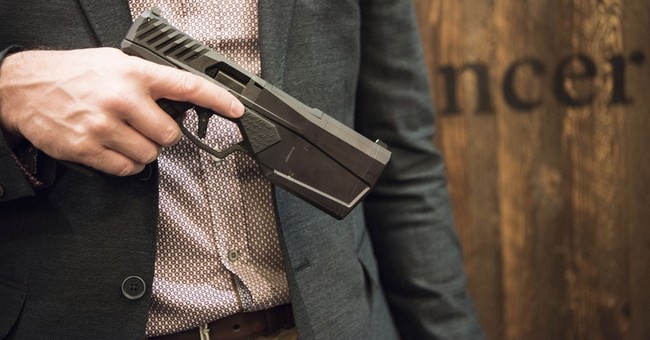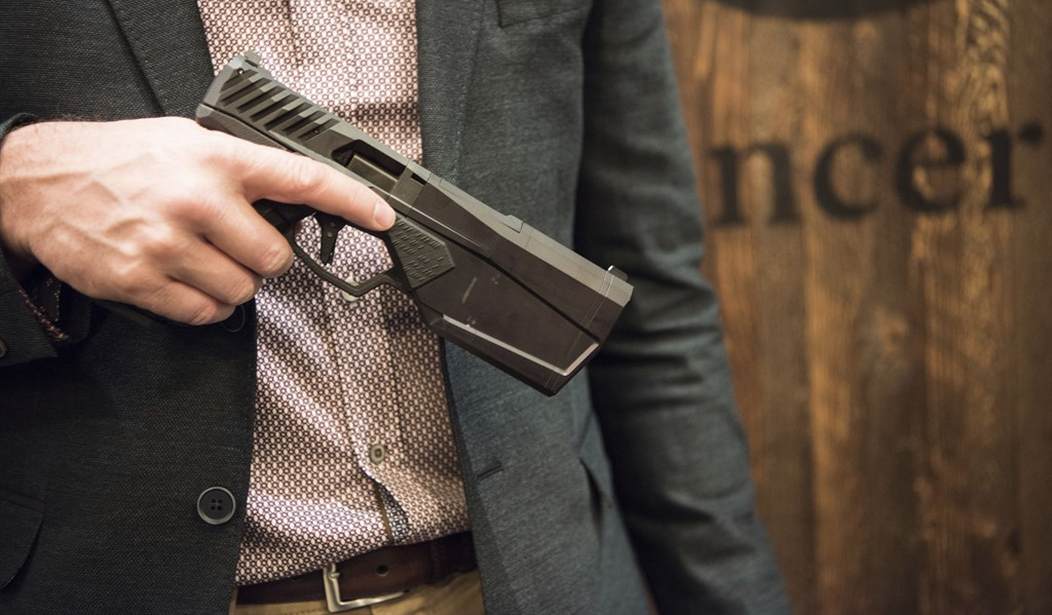
The state of Kansas tried something a while back. It was a law that basically stated that if a gun is manufactured and used in the state, without ever crossing state lines, it is exempt from federal gun control laws. It wasn’t that out of left-field, either.
In the Supreme Court case of Gonzales v. Raich, the Court found that Congress could criminalize the production of marijuana under their authority in the Commerce Clause. It’s a gross oversimplification, but part of the reasoning appeared to be that cannabis could easily be transported over state lines and since it wasn’t serialized or anything, there was little that could be done to make sure it stayed in states where it was legal.
Kansas and a small handful of other states decided to pass laws that basically said that guns made in the state, and guns that stayed in the state, could be exempt from federal regulations. Since guns can be serialized and marked as being made in those states, the argument was that this should bypass the Commerce Clause.
After all, the federal government isn’t supposed to have any authority to regulate firearms anyway, especially not in the individual states. The lone exception is the government’s overly broad interpretation of the Commerce Clause.
Of course, the only way to know if this will work for certain is if the case is tested in court. Will this line of reasoning hold up?
Well, it looks like we have a test case in the works.
An appeals court on Tuesday upheld the firearms convictions against two Kansas men who mistakenly believed that a Kansas law can shield from federal prosecution anyone owning firearms made, sold and kept in the state.
The 10th U.S. Circuit Court of Appeals rejected Shane Cox and Jeremy Kettler’s challenges to their federal convictions under the National Firearms Act.
The three-judge panel did not address the constitutionality of the state’s Second Amendment Protection Act, which Kansas defended when intervening in the criminal case. The state gun law says firearms, accessories and ammunition manufactured and kept within Kansas borders are exempt from federal gun control.
Cox was convicted of making and marketing unregistered firearms, and Kettler was convicted for possessing an unregistered gun silencer.
The men challenged the constitutionality of the National Firearms Act, alleging it is an invalid exercise of congressional power and an invasion of the Second Amendment right to bear arms. They also challenged the lower court’s ruling that their reliance on the state law provided no defense to the federal charges.
Separately, Kettler argued further that his prosecution resulted from the dispute between Kansas and the federal government over the Kansas law.
This sets the case up for a potential showdown at the Supreme Court. This would test the argument from Gonzalez since unlike pot, guns can be identified as being from a given state and can be managed to be kept there.
Of course, that all depends on whether the Court will agree to hear the case. That’s something they haven’t done since McDonald v. City of Chicago in 2010.
For my own money, I say that they need to. The Court needs to make a firm decision on the side of the Second Amendment. Ideally, it’d issue a ruling that effectively ends all gun control schemes in this country, but I’m not holding my breath on that one. On this one, though, I’d love to see them smack down the government. It would open the door for many other states to permit law-abiding citizens to own and use items they can’t get otherwise without special government permission.
Imagine a world where machine guns and select-fire rifles are sitting in your local gun store, ready for you to pick up whenever you want? It would be glorious.
But first, we’ve got to get the ruling. Here’s hoping and praying.








Join the conversation as a VIP Member